-
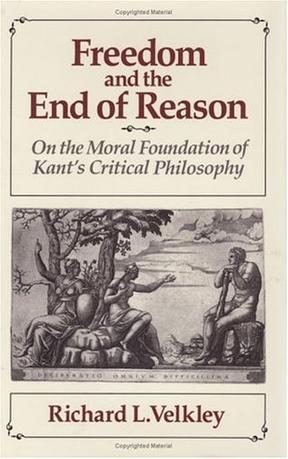
Freedom and the End of Reason
Richard L. Velkley offers a new interpretation of the central issue of Kant's philosophy and a new evaluation of its position within the history of modern philosophy. He persuasively argues that the whole of Kantianism, not merely the Second Critique, is really a "critique of practical reason" and a response to a problem Kant saw as intrinsic to reason: the teleological problem of reason's goodness. By stressing a Rousseau-inspired notion of reason as a provider of practical ends, Velkley also is able to offer an unusually complete account of Kant's idea of moral culture. Drawing upon Kant's precritical writing of the 1760s, Velkley effectively argues that Rousseau showed Kant that the purely instrumental view of reason as the mere slave of passions--a view advanced by such Enlightenment thinkers as Hobbes, Locke, and Hume--was self-defeating. Their modern conception of reason attempts to emancipate humanity from superhuman powers and authorities, but it paradoxically brings about the deeper enslavement of humanity to its own artifacts and passions. Rousseau's thought provided Kant with certain decisive elements in his account of reason, especially through a new concept of freedom, that enabled Kant to establish the foundation for a coherent version of the Enlightenment, one that reconciles modern emancipation from "dogmatism" with the human need for the sacred, the noble, and the beautiful. In reconstructing the influence of Rousseau on Kant's thought, Velkley demonstrates that the relation between speculative philosophy and practical philosophy in Kant is far more intimate than has been generally perceived. The "dialogue" of Kant with Rousseau in the 1760s begins the debate on the soundness of the modern "enlightenment" understanding of the relation of reason to society and the human good, a debate that is continued by the major Continental philosophers. Velkley's formidable study establishes that the later modern reforms--new ideas of freedom, history, and culture, which replace human nature as the ground for knowledge of the human good--have their primary roots in Kant's encounter with Rousseau. -
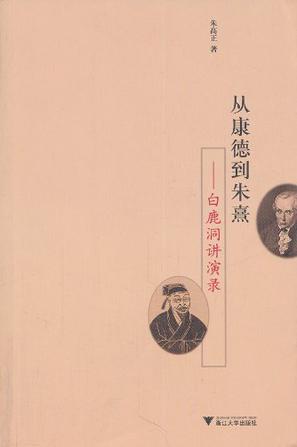
从康德到朱熹
朱高正所著的《从康德到朱熹:白鹿洞讲演录》是其在白鹿洞书院讲学的讲稿汇编。他以《白鹿洞书院揭示》和《近思录》为主要内容,着力阐明濂洛关闽的主要思想,简明扼要,深入浅出,颇可见其理学的造诣。特别是他以朱子《揭示》为东亚近世学校的共同校训颇具创新。 -
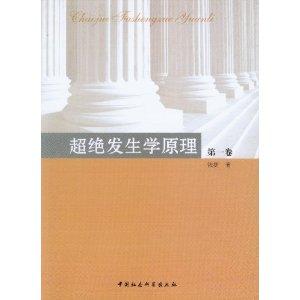
超绝发生学原理-第一卷
本书是《超绝发生学原理》的第1卷。在这本书中,作者钱捷以康德的超绝演绎为案例表明一般超绝哲学应是一种奠基性、内在性和构成性三者统一的体系,并揭示了这种体系的语义学特征,给出了它的总体性质关系式,提出了它的完备形式必为一种超绝发生学的构想。接着,作者具体地分析了迄今存在过的三种主要的超绝哲学形态,即康德的超绝演绎、后康德主义者(费希特、谢林和黑格尔)的辩证的超绝观念论和胡塞尔的超绝现象学,分别指出了它们各自的基本理路与系统特征,以及它们所存在的困难与不足。因此,这本《超绝发生学原理(第1卷)》可以看做作为超绝哲学完备形式的超绝发生学的一个导论。 -
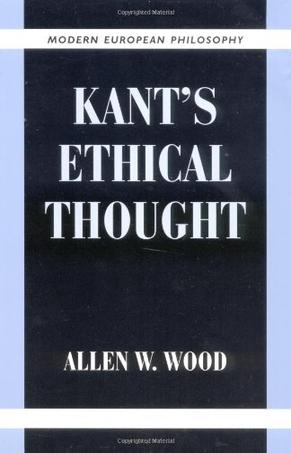
Kant's Ethical Thought
This is a major new study of Kant's ethics that will transform the way students and scholars approach the subject in future. Allen Wood argues that Kant's ethical vision is grounded in the idea of the dignity of the rational nature of every human being. Undergoing both natural competitiveness and social antagonism the human species, according to Kant, develops the rational capacity to struggle against its impulses towards a human community in which the ends of all are to harmonize and coincide. The distinctive features of the book are twofold. First, it focuses for the first time on the central role played in Kant's ethical theory by the value of rational nature as an end itself. Second, it shows the importance of Kant's systematic theory of human nature and history, and its implications for the structure, formulation, and application of Kant's moral principles. This comprehensive study will be of critical importance to students of moral philosophy, the history of ideas, political theory, and religious studies. -
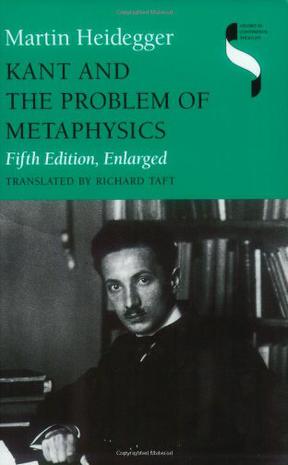
Kant and the Problem of Metaphysics, Fifth Edition, Enlarged
o ...one of HeideggerOs most important and extraordinary works...indispensable for anyone interested in HeideggerOs thought as well as in current trends in hermeneutics, ethics, and political philosophy.O NInterpretation oKant and the Problem of Metaphysics is among the most important readings in this century of KantOs Critique of Pure Reason. This authoritative English translation will play an important role in determining HeideggerOs reputation in the coming years.O NChoice oHeideggerOs interpretation of Kant remains a challenging way to address the issues that both Kant and Heidegger saw as crucial...In reading [Kant and the Problem of Metaphysics] we can struggle with some basic issues of human existence in the company of two great minds.O NInternational Philosophical Quarterly Since its original publication in 1929, Martin HeideggerOs provocative book on KantOs Critique of Pure Reason has attracted much attention both as an important contribution to twentieth-century Kant scholarship and as a pivotal work in HeideggerOs own development after Being and Time. The work is significant not only for its illuminating assessment of KantOs thought but also for its elaboration of themes first broached in Being and Time, especially the problem of how Heidegger proposed to enact his destruction of the metaphysical tradition and the role that his reading of Kant would play therein. -
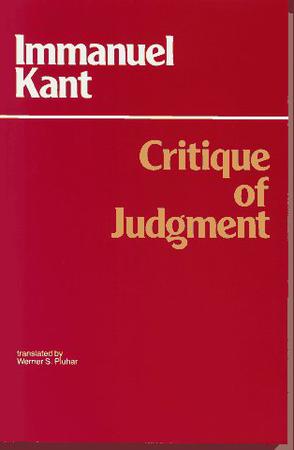
Critique of Judgment